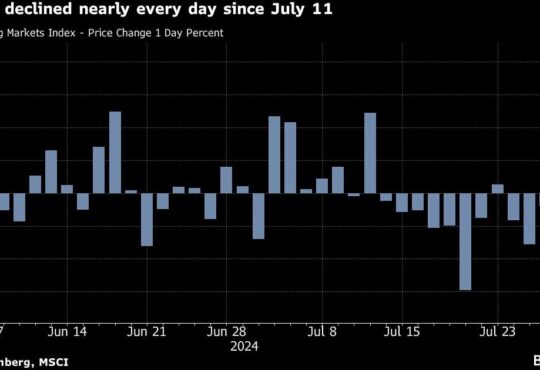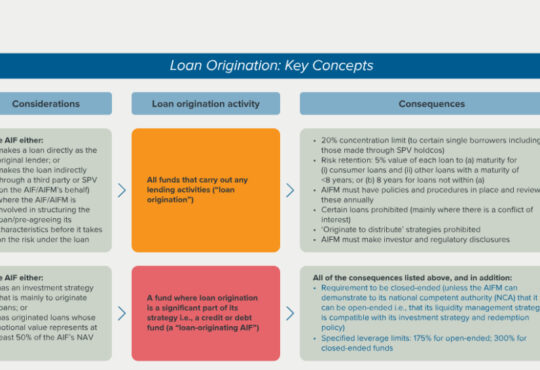
1. FSPO publishes its 2022 Annual Report
On 23 August 2023, the Financial Services and Pensions Ombudsman
(“FSPO“) published its 2022 Annual Report
(“Report“) which covers the period from
1 January to 31 December 2022. The following is a summary of some
of the work highlights detailed in the Report:
Key Statistics:
- 4,781 complaints were received by the FSPO;
- 4,647 complaints were closed;
- customer service accounted for 28% of complaints;
- €5 million was awarded for individual complainants;
- 80% of complaints were made online;
- 163 decisions were shared with Central Bank of Ireland
(“Central Bank“); - 10 decisions were referred to the Central Bank;
- 134 decisions related to tracker mortgages were shared with the
Central Bank; and - 19 business interruption related decisions were also shared
with the Central Bank.
The FSPO used its four focus areas to relay much of its work.
They include:
Sharing and Influencing
The FSPO publishes its Overview of Complaints every year and
includes a report on the financial service providers which have had
at least 3 complaints against them upheld. The FSPO also published
Digests of Legally Binding Decisions. In its Digest of travel
insurance complaints, the FSPO called on insurers to provide clear,
comprehensible terms and conditions, as more clarity may
potentially lead to fewer complaints. In its Digest on health
insurance complaints, the FSPO found that only 15% of consumers
felt that they had a very good understanding of their plan, and 27%
felt that they had a poor understanding, indicating increased
complaints due to a misunderstanding about cover levels.
In 2022
- 55% of complaints related to banking, a marginal decrease from
2021; - 24% related to insurance, a 10% decrease;
- 8% related to investment products, a 5% increase; and
- 5% related to pension schemes, a 25% increase.
The top 4 areas of complaints were
- customer service 28%;
- maladministration 17%;
- disputed transactions 11%; and
- claims handling 8%.
The FSPO has also focused on engagement with stakeholders. It
made a submission to the European Commission regarding
‘enforcement cooperation among European consumer protection
authorities, and on adapting dispute resolution procedures for for
the cross-border nature of digital markets’. The FSPO
proposed that consumers should be able to elect to have their
complaint resolved in their place of residence.
The departure of two significant financial service providers did
not lead to a rise in complaints to the FSPO, which it attributes
to active engagement with relevant stakeholders. Active engagement
with regulators such as the Central Bank and Pensions Authority
increased during 2022, and has contributed to improving the
consumer protection framework. The FSPO has provided contributions
to the Consumer Protection Code Review, the Retail Banking Review
and the Credit Service Review, as well as offering possible
implications of the Zalewski judgment.
Evolving and Innovating
The FSPO received 55 complaints about its customer service, an
increase of 16.6% from last year. The FPSO has made significant
improvements to its website in response to the overwhelming
preference for online communication, but also maintained more
traditional, non-digital methods of communication and introduced
accessibility initiatives across online and traditional
platforms.
In improving its business intelligence, the FSPO has developed
technical initiatives to collect and understand data and how it can
improve operational decision making, manage business performance
and influence complaint trends.
Connecting and Engaging
The FSPO compared its consumer surveys from 2021 and 2022 and
concluded that consumer awareness about the FSPO being the body to
contact for unresolved financial services complaints increased by
15%. The surveys indicated that awareness was lowest in younger
people and certain socio economic groups. In addressing this, the
FSPO has launched a successful digital marketing campaign on
Facebook and YouTube.
Developing Our People, Building Our
Capability
Gender balance among senior management in the FSPO was 66%
female and 33% male, with an overall staff of 62% female. The FSPO
also has procedures in place in line with the Protected Disclosures
Act 2014, GDPR and the Freedom of Information Act 1994. It has also
taken actions to ensure that its reporting obligations under SEAI
are met.
2. Financial services observations from the CCPC’s 2022
Annual Report
On 18 August 2023, the Competition and Consumer Protection
Commission (“CCPC“) published its 2022 Annual
Report (“Report“). The
following is a summary of the CCPC’s work as it applies to
financial services. The CCPC used its strategic goals as the basis
for communicating the work it completed in 2022.
Strategic Goal 1: Use powers to deliver effective
enforcement and compliance outcomes
Consumer Rights Act 2022
As part of the commencement of this legislation, the CCPC
published information for businesses to assist them in complying
with the new requirements for selling products, services, digital
services and unfair contract terms.
Merger Review Decisions
The CCPC highlighted the importance of its merger review
function in protecting consumers and ensuring adequate competition
within the market. Within the financial service sector, this can be
seen in the significant change in retail banking with the departure
of key retail banks from the market, impacting on consumers. The
Report highlighted that within the Financial Services sector, there
were 6 banking merger determinations. Singled out for specific
mention were two merger notifications with commitments to address
competition concerns which included:
- Synch Payment Joint Venture (AIB, Bank of Ireland, PTSB)
- Bank of Ireland/Certain Assets of KBC
Private Motor Insurance
The CCPC published their report on their investigation into
anti-competitive price signalling in the private motor insurance
sector in 2022. Several insurers entered into commitment agreements
with the CCPC following this investigation which focuses on
implementing and maintaining an appropriate internal competition
law compliance programme.
Goal 2: Empower consumers to make informed decisions by
providing information about their rights, personal finance and
product safety
The CCPC offers helpline supports for consumers by providing
them with information on consumer rights and personal finance
products. The most common queries received regarding personal
finance were:
- Mortgages and Equity Release – 654
- Current Accounts – 435
- Motor Insurance – 303
- Loans – 269
- Insurance (gadget, pet, income protection) – 146
In addition the CCPC’s money tools were the most popular
section of the CCPC’s website with over 794,974 visits. These
consisted of:
- mortgage comparisons: 308,784 visits;
- mortgage calculator: 197,339 visits;
- loan comparison: 189,145 visits;
- current account comparison:169,145; and
- money tools homepage:163,796 visits.
Focus on Crypto-Currency
The CCPC published 3 videos explaining crypto-currency on their
website entitled:
- ‘Understanding Crypto’;
- ‘Volatility in Crypto’; and
- ‘Crypto Scams’.
Consumer Campaigns
The CCPC carried out 8 campaigns during 2022, including 6 on
personal finance:
- Money Tools – promoting CCPC’s free, impartial and
easy to use Money Tools; - How to be Good with Money – promoting information on the
CCPC’s Money Tools and its role in personal finance on the tv
series How to be Good with Money; - Current Accounts Money Tool – to inform Ulster Bank
account holders that they can use the Money Tools to find another
provider; - Current Account Switching – to inform Ulster Bank and KBC
account holders that the CCPC Switching Hub contains information
about setting up a new account; - Pension Planning – to explain key pension terms to the
public to keep them better informed on pensions; and - Buy Now Pay Later – to inform customer on what they
should know before using this financing option.
Goal 3: CCPC will be a leading voice in representing the
interests of consumers and promoting competition
The CCPC engaged with many different shareholders, at national
and international level, and sought contributions regarding the
relevant policy and legislative developments, cooperation on
enforcement and exchange best practices. Within the Financial
Services sector these included:
- Central Bank of Ireland (“Central Bank”);
- Department of Enterprise, Trade and Employment;
- Department of Finance;
- Financial Service Union;
- Office to Promote Competition in Insurance; and
- Personal Injuries assessment Board.
The CCPC contributed a detailed submission to the Department of
Finance’s Retail Banking Review, providing a number of
recommendations to promote competition and consumer interests. It
also contributed to the Consumer Protection Code Review, urging the
Central Bank to review its switching code following on from the
difficulties experienced by consumers recently switching current
accounts. Finally, it advocated to the National Council for
Curriculum Investment to include financial education in the Aistear
Curriculum and financial literacy in the Leaving Certificate
Business curriculum.
In terms of stakeholder engagement, the CCPC engaged with the
Central Bank of Ireland to share its experiences and knowledge on
different areas of SEPA. This assisted their work in 2022 in
driving business compliance for business to consumer
transactions.
Market Research
The CCPC carried out two behavioural trials with the Economic
Social Research Institute (“ESRI”) on ways to encourage
consumers to actively save. The research shows that applying
behavioural science to consumer communications and application form
designs can increase the uptake of saving accounts by 25%. The CCPC
and ESRI developed a guide for savings providers on how to use the
recommendations to develop savings products which encourage
consumers to save, supporting their well-being.
3. Minister McGrath makes a statement on Bank of Ireland
systems outage
On 16 August 2023, the Minister for Finance, Michael McGrath made a statement regarding the Bank of
Ireland technical outage which affected customers
using the mobile app and 365Online services.
Minister McGrath commented that he had requested that the
Central Bank of Ireland (“Central Bank“)
carry out an assessment on how and why it happened and what can be
done to prevent a reoccurrence. He stressed that there is a growing
dependence on technology within financial services and urged the
Central Bank to assess ‘more broadly the robustness of the
technology systems used by regulated, consumer-facing financial
service providers here in Ireland’, along with steps that
are needed to reduce the risks of outages that impact
customers.
Minister McGrath emphasised that financial service providers
must ensure consistency of service for their customers to enable
the ordinary functioning of society. Disruptions in the banking
sector affect both businesses and the personal lives of people, and
customers are entitled to expect uninterrupted access to high
quality services.
4. Publication of Commission Delegated Regulation
2023/1651
On 23 August 2023, Commission Delegated Regulation 2023/1651
of 17 May 2023 supplementing the Investment Firms
Directive 2019/2034 (“IFD“) regarding
regulatory technical standards (“RTS“)
on specific liquidity measurement of investment firms was published
in the Official Journal of the European Union.
The European Commission adopted the European Banking
Authority’s draft RTS specifying how liquidity risk and
elements of liquidity risk are to be measured appropriate to the
size, structure and internal organisation of investment firms and
the nature, scope and complexity of their activities on 17 May
2023.
To ensure a harmonised application of the specific liquidity
requirements, competent authorities will have to assess:
- all elements specific to each service provided by the
investment firm under Directive 2014/65/EU (“MIFID
II“);? and - other elements that could have a material impact, such as
external factors, group structure, operational or reputational
risks.
The Delegated Regulation will come into force on 12 September
2023, 20 days after its publication in the Official Journal.
5. European Commission adopts Delegated Regulation amending the
list of high-risk third countries under MLD4
On 22 August 2023, the European Commission
(“Commission“) adopted a Delegated Regulation that amends the list
of high-risk third countries with strategic anti-money
laundering (“AML“) and
counter-terrorist financing (“CTF“)
deficiencies under Article 9(2) of the Fourth Money Laundering
Directive (“MLD4“).
At its plenary meeting on 21-23 June 2023, the Financial Action
Task Force (“FATF“) added Cameroon,
Croatia and Vietnam to its ‘Jurisdictions under Increased
Monitoring’ list (“List“). The
Commission noted that the changing nature of money laundering and
the constant development of technology, requires that the
Commission acts quickly and efficiently in adapting its legal
framework on high-risk third countries. The Commission considers
that the internal market would be exposed to serious risk, given
the integration of financial systems if the European Union
(“EU“) did not add the countries
identified by FATF on its list (Croatia excluded as it is a member
of the EU and therefore not a third country) .
Both countries have made high-level political commitments
addressing the identified deficiencies and developed action plans
with FATF, the implementation of which will be closely monitored by
FATF. Because of this, the Commission has classified them as
‘High-risk third countries which have provided a written
high-level political commitment to address the identified
deficiencies and have developed an action plan with
FATF’.
Next Steps
The Commission will now submit the Delegated Regulation to the
European Parliament and the Council of the EU for scrutiny. If
there are no objections, it will come into force 20 days after its
publication in the Official Journal of the EU.
The content of this article is intended to provide a general
guide to the subject matter. Specialist advice should be sought
about your specific circumstances.





